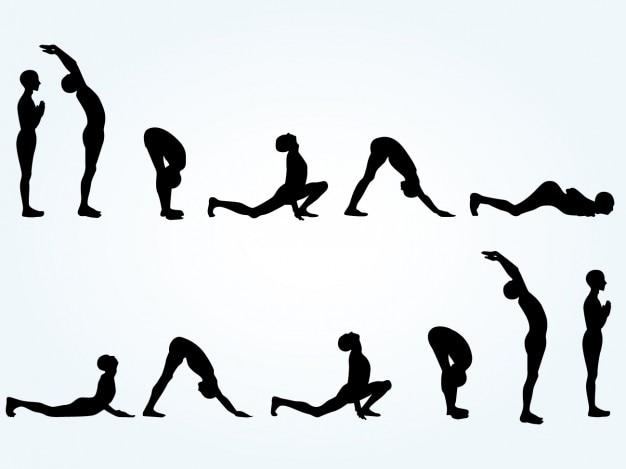
Fall asleep fast tonight

You know you should be getting your shuteye every night, but if you’re like most of us, you’re either not sleeping enough, waking up a lot when you do, or lying there wondering if it’s too late (or, ugh, too early) to get up and turn on the TV. In fact, 60% of Americans experience sleep problems every single night. Before you write this off as another of life’s unsolvable problems (or, let’s be honest, just reach for the sleeping pills again) read on. As it turns out, simple tweaks to your all-day routine can prep you for a much better night’s sleep. Here’s what to do from the second you wrestle yourself from your warm bed in the morning to the moment you crawl back in after a long day. Follow these, and you can kiss those sheep goodbye.
Now, don’t roll your eyes. If you want a better night’s sleep, you have to get serious about it. Need convincing? A study found that when you’re short on zzzs, you’re also more likely to overreact to minor incidents, feel stressed out, and blow your top. Even worse, your physical health takes a hit, too. “Lack of sleep increases the risk for high blood pressure, depression and weight gain, the latter as a result of adverse effects on hormones that regulate appetite,” says Andrew Weil, MD, Prevention advisory board member, founder and director of the Arizona Center for Integrative Medicine.

2. Say no to coffee after noon
Your morning mug gets a pass, but guzzling it all day is a big no-no. Here’s why: It’s often said that caffeine has a half-life of about five hours—which means if you eat an early enough dinner, that after-supper cappuccino should be out of your system by bedtime, right? Unfortunately, that’s not quite right. After seven hours, much of the stimulant will be gone from your system, depending on your sensitivity to it—but 25% of it could still be there. “It can also increase nighttime urination and otherwise adversely impact your sleep,” says Dr. Weil.

3. Get your sweat on
Sleep experts often say you should avoid working out in the evenings because it can take hours for adrenaline—that exciting hormone that surges during exercise—to return to normal levels. Unfortunately, the proof that nighttime workouts inhibit sleep just isn’t there. There is plenty of research, however, that supports the idea that exercise improves sleep. One study found that insomniacs who picked up a regular exercise routine slept better, felt less depressed, and had more energy all day. The bottom line? If working out at night interrupts your sleep, squeeze in a morning run instead. If not, get exercise in whenever you can. (Need a new exercise routine?

4. Go easy on the booze
A nightcap, tempting though it may be when you can’t sleep, can actually ruin your slumber—and that’s especially true for women. According to one study, men who went to bed tipsy slept soundly—as well as when they were sober—but women slept fewer minutes and woke up more often. What’s more, alcohol robs you of REM and the other, deeper stages of sleep—which are the ones that make you feel most rested. Finally, like coffee, alcohol is a diuretic, says Dr. Weil. It’s hard to sleep when you’re running to the bathroom every couple of hours.

5. Unwind when you get home
If walking in the door means confronting a pile of bills—or a gaggle of hungry children—it’s understandable that relaxation can seem all but impossible. But it’s smart to start unwinding early in the evening, so you’re marking a transition from your stressful day life, to your evening. Pencil in a 5-minute window of you-time where you brew a cup of calming chamomile tea, take a bath if you have time, or just sit quietly alone (bathrooms are great since no one will bother you in there).

6. Before bed, get it on
Many a joke has been made about how quickly men conk out after sex—but there’s actually a good reason for it. After intercourse, men’s bodies flood with prolactin, a hormone that is also naturally higher during sleep. It’s likely that the hormone’s release during orgasm causes men to feel sleepy. Add to that hormone soup oxytocin—sometimes called the cuddle hormone, and which is also associated with sleep—and it’s no wonder he’s snoring within minutes. But he’s not alone! Women produce more oxytocin than do men—which can be a recipe for a good night’s sleep for you, too.


7. Step away from your phone
That thing that’s been glued to your hand all day? It’s got to go if you want a sound sleep—and the same goes for your laptop and iPad, too. Why? The blue wavelengths produced by your smartphone and other gadgets (and energy-efficient LED light bulbs) significantly suppress the production of melatonin, the hormone that makes you sleepy, according to University of Basel research. Another problem: Light-emitting devices engage and stimulate the mind, resulting in poorer sleep, according to an Osaka University study.

8. Meditate, meditate, meditate
It’s a tough sell, we know, but regular meditation may be a powerful tool for some insomniacs. The science as to why is still equivocal, but we do know meditation sends signals to your sympathetic nervous system's "fight or flight" response telling it that it’s all right to relax. “It can help you put aside thoughts from the day,” says Dr. Weil, so it’s especially useful for people prone to worry.

9. Smell the roses
This can be done on its own or with aromatherapy oils. Just sprinkle four or five drops on a bathroom tissue and hold it to your nose, taking 10 to 15 deep breaths. If you’re upset about something, reach for some organic essential oils with high concentrations of lavender, says Hope Gillerman, certified aromatic healer and the creator of the cult line H. Gillerman Organics. “Studies show it’s one of nature’s best sedatives.” And if awake you’re stewing about work, anxious about money, or just plain feeling overwhelmed, try spikenard, vetiver, frankincense, myrrh and clary sage, says Gillerman. “These oils will slow you down to promote a heavier, more restorative sleep.”

10. Try some easy yoga poses
A few low-key yoga moves can signal to your brain that slumber is coming. We especially like gentle forward bends, corpse pose, and happy baby pose—and though the science is murky as to why, many yoga teachers recommend inversions, such as shoulder stand, especially if you’re feeling anxious.

Get the very BEST in skin care, nutritional supplements, and other herbal health products. Get yours by clicking here














Post a Comment